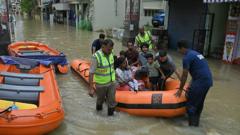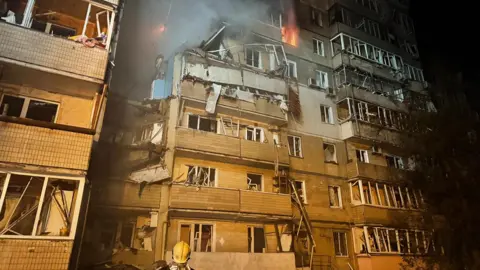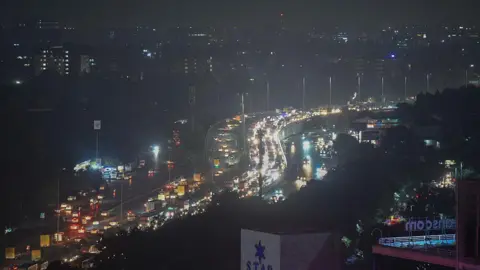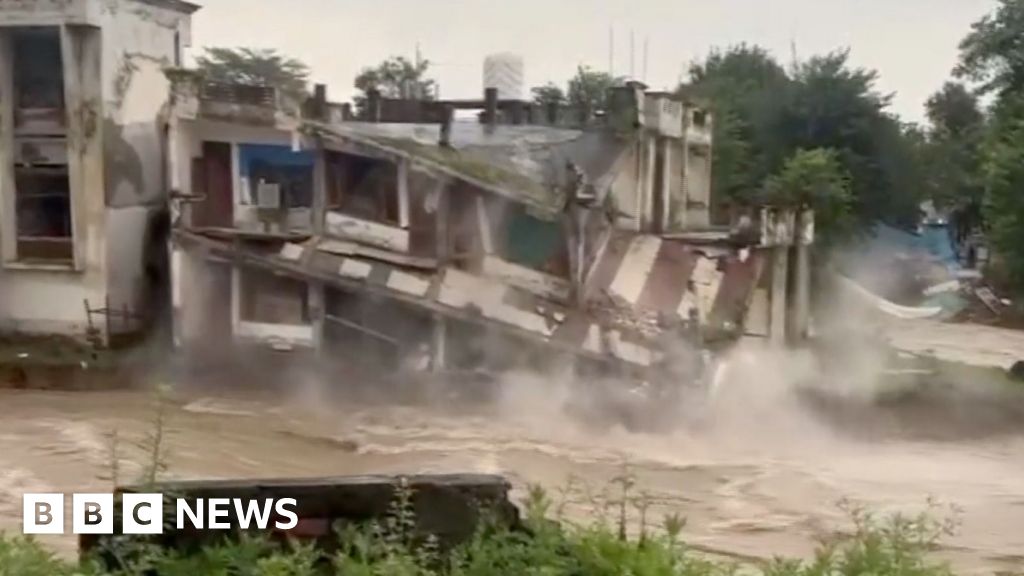Bengaluru, often referred to as India’s Silicon Valley, is facing an extraordinary crisis as heavy rains inundated several parts of the city. Over the weekend, the city recorded more than 100mm of rainfall—a level not seen since 2011—which has prompted officials to issue alerts for more pre-monsoon showers on Tuesday due to cyclonic patterns over the Andaman Sea. Tragically, at least three lives, including that of a 12-year-old boy, have been claimed by rain-related incidents since Monday.
Major global tech companies based in Bengaluru have mandated employees to work from home amid the chaos as flooded roads hinder commuting. The deluge initiated on Sunday, resulting in significant water-logging and property damage throughout the city. An alarming incident in one of the IT corridors saw the compound wall of a software firm, i-Zed, collapse, resulting in the death of a 35-year-old female employee.
Traffic disruptions have marred daily life, with residents wading through knee-deep water as cars sit stranded on submerged streets, and some homes have experienced water ingress. To combat the situation, the city corporation has identified 210 flood-prone areas and is working around the clock to address these concerns. Despite the dire circumstances, Karnataka’s Deputy Chief Minister, DK Shivakumar, reassured citizens that there was no need for panic.
The current administration in Karnataka, governed by the Congress party, faces criticism from the opposition Bharatiya Janata Party (BJP), which has accused it of neglecting rain-related infrastructure despite significant financial investment. The BJP is demanding an immediate allocation of 10 billion rupees (approximately $117 million) for disaster relief efforts.
State officials have responded by highlighting that these flood-related issues are ongoing problems stemming from years of neglect by successive governments. Experts attribute the city's recurring flooding incidents to unregulated urbanization, including extensive construction on lakes and wetlands, as well as ineffective urban planning. Social media is abuzz with criticisms aimed at the straining infrastructure and the city’s inability to manage the intense rainfall effectively.
Major global tech companies based in Bengaluru have mandated employees to work from home amid the chaos as flooded roads hinder commuting. The deluge initiated on Sunday, resulting in significant water-logging and property damage throughout the city. An alarming incident in one of the IT corridors saw the compound wall of a software firm, i-Zed, collapse, resulting in the death of a 35-year-old female employee.
Traffic disruptions have marred daily life, with residents wading through knee-deep water as cars sit stranded on submerged streets, and some homes have experienced water ingress. To combat the situation, the city corporation has identified 210 flood-prone areas and is working around the clock to address these concerns. Despite the dire circumstances, Karnataka’s Deputy Chief Minister, DK Shivakumar, reassured citizens that there was no need for panic.
The current administration in Karnataka, governed by the Congress party, faces criticism from the opposition Bharatiya Janata Party (BJP), which has accused it of neglecting rain-related infrastructure despite significant financial investment. The BJP is demanding an immediate allocation of 10 billion rupees (approximately $117 million) for disaster relief efforts.
State officials have responded by highlighting that these flood-related issues are ongoing problems stemming from years of neglect by successive governments. Experts attribute the city's recurring flooding incidents to unregulated urbanization, including extensive construction on lakes and wetlands, as well as ineffective urban planning. Social media is abuzz with criticisms aimed at the straining infrastructure and the city’s inability to manage the intense rainfall effectively.





















